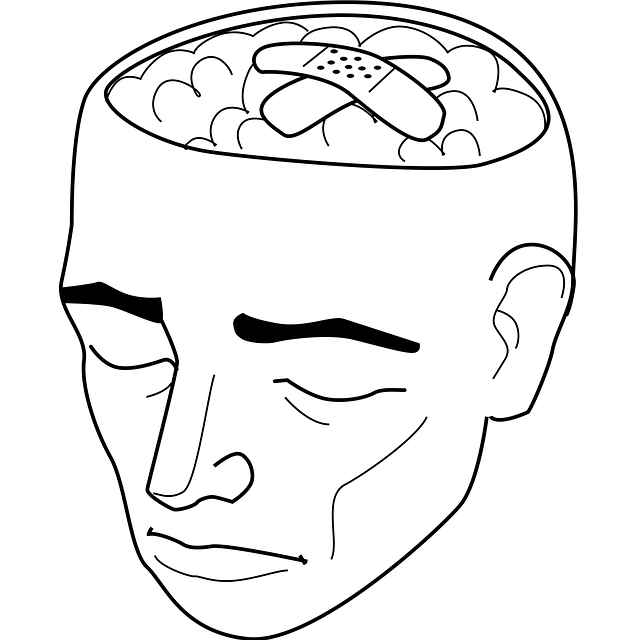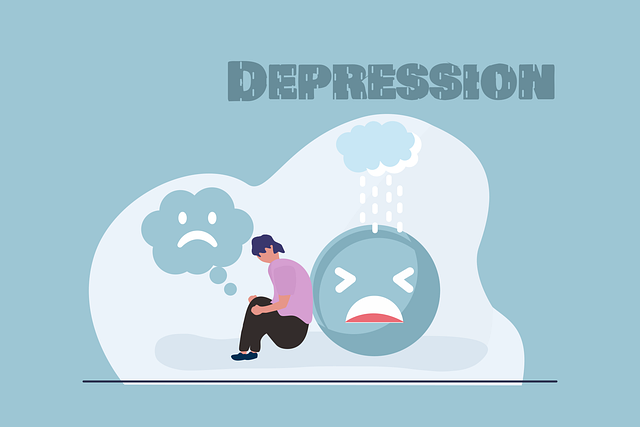Wheat Ridge Cognitive Behavioral Therapy (WRCBT) emphasizes the importance of community outreach for improving mental health access. By understanding cultural contexts and offering tailored services, WRCBT builds trust and encourages open conversations about mental wellness. Their programs include interactive workshops, group discussions, and accessible resources, empowering individuals to manage their mental health effectively. Engaging local communities through partnerships and culturally sensitive communication strategies ensures impactful therapy services. A strategic approach, continuous evaluation, and participant feedback are key to successful outreach, allowing WRCBT to enhance mental health literacy and access within diverse communities.
Community outreach programs play a pivotal role in enhancing mental health accessibility. This article explores why such initiatives are crucial, highlighting their profound impact on vulnerable populations. We delve into practical strategies, offering insights tailored to Wheat Ridge Cognitive Behavioral Therapy’s approach. From designing effective programs to engaging community partners and measuring success, this guide equips professionals with tools to implement outreach, fostering positive mental health outcomes and strengthening community connections.
- Understanding Community Outreach: Why It Matters and Its Impact on Mental Health
- Designing Effective Programs: Strategies for Wheat Ridge Cognitive Behavioral Therapy
- Engaging the Community: Building Partnerships and Overcoming Barriers
- Implementing Practical Steps: From Planning to Execution
- Measuring Success and Continuous Improvement in Community Outreach
Understanding Community Outreach: Why It Matters and Its Impact on Mental Health

Community outreach programs play a pivotal role in promoting emotional well-being and enhancing access to mental health services, particularly in diverse communities. These initiatives, such as those offered by Wheat Ridge Cognitive Behavioral Therapy, are designed to bridge the gap between healthcare professionals and individuals who may face barriers to seeking treatment. By implementing effective Community Outreach Program Implementations, therapists and mental health professionals can significantly impact the lives of those struggling with various challenges.
Understanding the needs and cultural nuances of different communities is essential for successful outreach. This approach not only ensures that services are tailored to specific populations but also fosters trust and encourages open conversations about mental health. Through Emotional Well-being Promotion Techniques, professionals can educate and empower individuals to take charge of their mental health. Moreover, a thorough Risk Assessment for Mental Health Professionals is crucial to identifying potential hazards and ensuring the safety and well-being of both service providers and clients during outreach activities.
Designing Effective Programs: Strategies for Wheat Ridge Cognitive Behavioral Therapy

Designing effective community outreach programs for Wheat Ridge Cognitive Behavioral Therapy (WRCBT) involves integrating the core principles of WRCBT with Mind Over Matter approaches. By focusing on empowering individuals to take charge of their mental health, these programs can foster self-care routine development and coping skills enhancement. Incorporating interactive workshops, group discussions, and accessible resources tailored to diverse communities allows for a more inclusive environment that encourages open conversations about mental wellness.
For instance, WRCBT outreach initiatives can prioritize education on evidence-based techniques, such as stress management strategies and cognitive reframing, enabling participants to apply these tools in their daily lives. Encouraging peer support and building a sense of community can further strengthen the therapeutic impact. Through tailored interventions, WRCBT aims to not only address immediate needs but also empower individuals with long-lasting self-care practices for improved mental health outcomes.
Engaging the Community: Building Partnerships and Overcoming Barriers

Engaging communities is a vital step in implementing successful outreach programs, such as those offered by Wheat Ridge Cognitive Behavioral Therapy. Building strong partnerships with local organizations, schools, and community leaders can greatly enhance the impact of therapy services. This collaborative approach leverages existing support systems and ensures that mental health resources are tailored to meet the unique needs of the community. By fostering open dialogue and understanding, these partnerships can help overcome barriers often associated with seeking therapy, such as stigma or lack of awareness.
Effective engagement strategies, rooted in Mind Over Matter Principles, involve implementing Communication Strategies that are sensitive to cultural differences. Cultural Sensitivity in Mental Healthcare Practice is key to ensuring that all individuals feel welcomed and understood. This involves training therapists to adapt their approaches, using inclusive language, and respecting diverse beliefs and practices. Such initiatives create a safe space where community members can openly discuss mental health concerns, encouraging early intervention and improved overall well-being.
Implementing Practical Steps: From Planning to Execution

Implementing community outreach programs for Wheat Ridge Cognitive Behavioral Therapy (WRCBT) involves a structured approach from planning to execution. The initial step is to identify the target audience and their specific needs, whether it’s promoting mental health awareness or offering stress reduction methods. Once defined, tailor the program to address these needs through engaging activities and educational sessions that align with WRCBT principles. Incorporate interactive elements, such as workshops on self-care practices, to ensure active participation from community members.
During execution, collaborate with local healthcare providers and organizations to maximize reach and impact. Offer training sessions on cultural competency for healthcare providers to foster inclusive practices within the program. Continuously gather feedback from participants to make necessary adjustments and improvements. Regular evaluation ensures the program remains relevant and effective in meeting the evolving needs of the community, ultimately enhancing mental health literacy and access to WRCBT services.
Measuring Success and Continuous Improvement in Community Outreach

Measuring the success of community outreach programs, such as those offering Wheat Ridge Cognitive Behavioral Therapy, is a critical step in ensuring their long-term impact and effectiveness. It involves a comprehensive evaluation process that goes beyond simple attendance numbers. By utilizing various qualitative and quantitative methods, organizations can gain insights into the program’s reach, engagement, and overall benefit to the community. This includes gathering feedback from participants, measuring changes in well-being and mental health status, and assessing the adoption of learned coping skills and emotional regulation strategies.
Continuous improvement is a key outcome of this process. By analyzing the data collected, outreach programs can adapt and refine their approaches, incorporating evidence-based techniques like empathy building strategies. This iterative cycle allows for more targeted interventions, better tailored to the unique needs of the community served, ultimately enhancing the overall effectiveness of such initiatives and fostering positive, lasting change.
Community outreach programs, like those practiced by Wheat Ridge Cognitive Behavioral Therapy, are transformative tools that significantly impact mental health. By understanding community needs, designing effective strategies, engaging partners, and measuring success, these initiatives foster well-being and create lasting positive change. Through continuous improvement, such programs can revolutionize access to care, ensuring a healthier, more resilient community for all.














